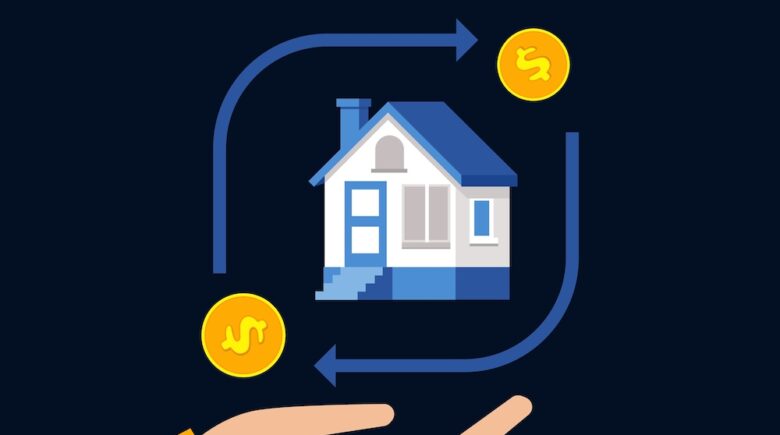Do you think about refinancing your house? Although refinancing a mortgage can have significant advantages, it can also be intimidating. What would it be a good idea for you to consider to settle on certain the choice is the right one for you? Your current loan terms will be replaced by new ones when you refinance, which may include lower monthly payments or interest rates.
In most cases, it is only suggested when interest rates are low and other financial factors are in harmony. Before refinancing an existing mortgage, there are benefits and drawbacks to take into consideration, whether you want to cut down on the amount of money you pay in interest each month, shorten the term of your loan, or access cash from your equity to make improvements to your home. To help you decide if refinancing your home is the best financial move for you, here are the benefits and drawbacks.
Pros:
Lower Loan fees
The clearest advantage of renegotiating your home loan is a lower financing cost. The interest rate for the life of your loan is set when you take out a mortgage. This indicates that even if rates fall in the future, refinancing is the only way to take advantage of them. Rates are likely to fall over time if you have an adjustable-rate mortgage (ARM), which could encourage you to refinance in the future. However, refinancing is a great way to take advantage of the current low interest rates if you have a fixed-rate mortgage. Using this mortgage refinance calculator, you can figure out how much money you could save by refinancing your home.
Access Cash From Your Equity
Accessing cash from your home equity is yet another reason to refinance. A conventional mortgage requires a 20% down payment on the purchase price of the home; however, there are other options, such as an FHA loan or a VA loan, which only require a 3.5% down payment. The lower up front installment could have an effect in your month to month contract installment, giving you greater adaptability to make enhancements to your home or unforeseen cover costs. You can consolidate your debt, including loans and credit cards, into a single mortgage with a single interest rate and repayment term by refinancing.
Lower Regularly scheduled Installment
Renegotiating your home loan can likewise bring about a lower regularly scheduled installment. With a conventional mortgage, you might pay one or two monthly interest payments. However, the interest rate reduction may result in a reduction of one or more of the scheduled monthly payments through refinancing. If you refinance with a 20% down payment and lower the interest rate from 4.75 percent to 3.25%, you’ll pay off the loan’s principal.
If you want to lower your monthly payment and reduce the length of your loan, another option is to refinance. Renegotiating will by and large abbreviate the term of your advance from 30 years to 15 years. This could be a decent choice in the event that you’re searching for additional money from the Value in your home or taking care of your home loan right on time with a lower regularly scheduled installment. You can utilize this adding machine to perceive how much cash you could save by renegotiating and taking care of the home loan early.
Consolidate Debt
Another effective method for reducing debt is to refinance an existing mortgage. If you want to consolidate high-interest credit card debt into a low-interest loan, home equity loans and lines of credit are popular choices. Refinancing can help you save money in the long run by lowering the interest rate on your home equity loan or line of credit and getting rid of credit card debt with higher interest rates.
Cons:
Fees and Costs
The most significant drawback of refinancing your mortgage is the associated costs. A new appraisal, a title search, and other closing costs are required when refinancing, which can cost several thousand dollars or more, depending on the location and market conditions. Because they have been pre-screened by a lender and represent favorable terms for the borrower, some refinance transactions are “no cost.”
New Lien
If you refinance, you may be required to pay closing costs because you will be taking out a new mortgage. You are taking out a second mortgage because the mortgage balance will put a lien on your home. Indeed, it sets you in a situation to accomplish monetary objectives like merging obligation or expanding income by renegotiating. Still, if something goes wrong and makes it hard for you to make payments in the future, it can put even more pressure on your overall financial situation. For instance, if you lose your job and are unable to make your monthly payment, you might lose your home.
Risk of a Higher Interest Rate
If you refinance at a higher interest rate, your interest rate will probably go up over time. For instance, on the off chance that your unique home loan is at 4% APR and you renegotiate into a 8% APR contract, it will cost considerably more to take care of the 30-year advance. On the other hand, with a 15-year term, your rate could go as low as 3.5% and still be lower than your original mortgage.
Loss of Home Equity
The most significant drawback of refinancing is the loss of home equity. Many people are surprised to learn that a refinance does not increase their home’s equity by paying off the mortgage balance; rather, it uses the money to pay for the new loan balance during low interest rates. Because it does not improve their equity position, which can be crucial if they are interested in selling their home in the long run, they view this as a significant disadvantage.
Cash-Out Renegotiating
Cash-out renegotiating is a typical way for buyers to exploit a lower loan fee, and there are a few possible traps. In the event that you are taking out cash and not taking care of your home loan, you could lose a significant measure of cash assuming financing costs ascend from here on out. A lot of people who cash out might use the money to put down a down payment on a second home or send their kids to college. If interest rates rise, taking out equity to pay for your children’s tuition or a second mortgage on a vacation home could hurt you because you would have to pay back more in interest. Having a financial plan and knowing exactly what you’re doing with your money is crucial because of this.
All in all, renegotiating is a method for exploiting the ongoing low-loan fees and advance your monetary circumstance in the long haul. It can be a useful tool to help you reach your savings goals and improve your long-term financial health if done correctly. One of the best ways to lower your monthly payments, save money, and pay off high-interest credit card debt is to refinance. You need to weigh whether it merits burning through a great many dollars for a momentary advantage.
Do you think about refinancing your house? Although refinancing a mortgage can have significant advantages, it can also be intimidating. What would it be a good idea for you to consider to settle on certain the choice is the right one for you? Your current loan terms will be replaced by new ones when you refinance, which may include lower monthly payments or interest rates.
In most cases, it is only suggested when interest rates are low and other financial factors are in harmony. Before refinancing an existing mortgage, there are benefits and drawbacks to take into consideration, whether you want to cut down on the amount of money you pay in interest each month, shorten the term of your loan, or access cash from your equity to make improvements to your home. To help you decide if refinancing your home is the best financial move for you, here are the benefits and drawbacks.
Pros:
Lower Loan fees
The clearest advantage of renegotiating your home loan is a lower financing cost. The interest rate for the life of your loan is set when you take out a mortgage. This indicates that even if rates fall in the future, refinancing is the only way to take advantage of them. Rates are likely to fall over time if you have an adjustable-rate mortgage (ARM), which could encourage you to refinance in the future. However, refinancing is a great way to take advantage of the current low interest rates if you have a fixed-rate mortgage. Using this mortgage refinance calculator, you can figure out how much money you could save by refinancing your home.
Access Cash From Your Equity
Accessing cash from your home equity is yet another reason to refinance. A conventional mortgage requires a 20% down payment on the purchase price of the home; however, there are other options, such as an FHA loan or a VA loan, which only require a 3.5% down payment. The lower up front installment could have an effect in your month to month contract installment, giving you greater adaptability to make enhancements to your home or unforeseen cover costs. You can consolidate your debt, including loans and credit cards, into a single mortgage with a single interest rate and repayment term by refinancing.
Lower Regularly scheduled Installment
Renegotiating your home loan can likewise bring about a lower regularly scheduled installment. With a conventional mortgage, you might pay one or two monthly interest payments. However, the interest rate reduction may result in a reduction of one or more of the scheduled monthly payments through refinancing. If you refinance with a 20% down payment and lower the interest rate from 4.75 percent to 3.25%, you’ll pay off the loan’s principal.
If you want to lower your monthly payment and reduce the length of your loan, another option is to refinance. Renegotiating will by and large abbreviate the term of your advance from 30 years to 15 years. This could be a decent choice in the event that you’re searching for additional money from the Value in your home or taking care of your home loan right on time with a lower regularly scheduled installment. You can utilize this adding machine to perceive how much cash you could save by renegotiating and taking care of the home loan early.
Consolidate Debt
Another effective method for reducing debt is to refinance an existing mortgage. If you want to consolidate high-interest credit card debt into a low-interest loan, home equity loans and lines of credit are popular choices. Refinancing can help you save money in the long run by lowering the interest rate on your home equity loan or line of credit and getting rid of credit card debt with higher interest rates.
Cons:
Fees and Costs
The most significant drawback of refinancing your mortgage is the associated costs. A new appraisal, a title search, and other closing costs are required when refinancing, which can cost several thousand dollars or more, depending on the location and market conditions. Because they have been pre-screened by a lender and represent favorable terms for the borrower, some refinance transactions are “no cost.”
New Lien
If you refinance, you may be required to pay closing costs because you will be taking out a new mortgage. You are taking out a second mortgage because the mortgage balance will put a lien on your home. Indeed, it sets you in a situation to accomplish monetary objectives like merging obligation or expanding income by renegotiating. Still, if something goes wrong and makes it hard for you to make payments in the future, it can put even more pressure on your overall financial situation. For instance, if you lose your job and are unable to make your monthly payment, you might lose your home.
Risk of a Higher Interest Rate
If you refinance at a higher interest rate, your interest rate will probably go up over time. For instance, on the off chance that your unique home loan is at 4% APR and you renegotiate into a 8% APR contract, it will cost considerably more to take care of the 30-year advance. On the other hand, with a 15-year term, your rate could go as low as 3.5% and still be lower than your original mortgage.
Loss of Home Equity
The most significant drawback of refinancing is the loss of home equity. Many people are surprised to learn that a refinance does not increase their home’s equity by paying off the mortgage balance; rather, it uses the money to pay for the new loan balance during low interest rates. Because it does not improve their equity position, which can be crucial if they are interested in selling their home in the long run, they view this as a significant disadvantage.
Cash-Out Renegotiating
Cash-out renegotiating is a typical way for buyers to exploit a lower loan fee, and there are a few possible traps. In the event that you are taking out cash and not taking care of your home loan, you could lose a significant measure of cash assuming financing costs ascend from here on out. A lot of people who cash out might use the money to put down a down payment on a second home or send their kids to college. If interest rates rise, taking out equity to pay for your children’s tuition or a second mortgage on a vacation home could hurt you because you would have to pay back more in interest. Having a financial plan and knowing exactly what you’re doing with your money is crucial because of this.
All in all, renegotiating is a method for exploiting the ongoing low-loan fees and advance your monetary circumstance in the long haul. It can be a useful tool to help you reach your savings goals and improve your long-term financial health if done correctly. One of the best ways to lower your monthly payments, save money, and pay off high-interest credit card debt is to refinance. You need to weigh whether it merits burning through a great many dollars for a momentary advantage.




